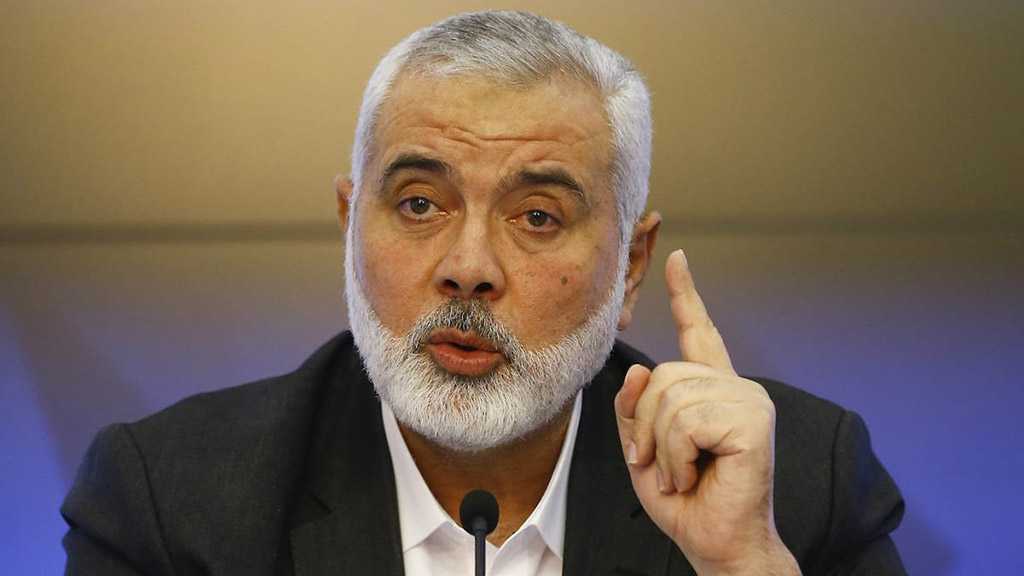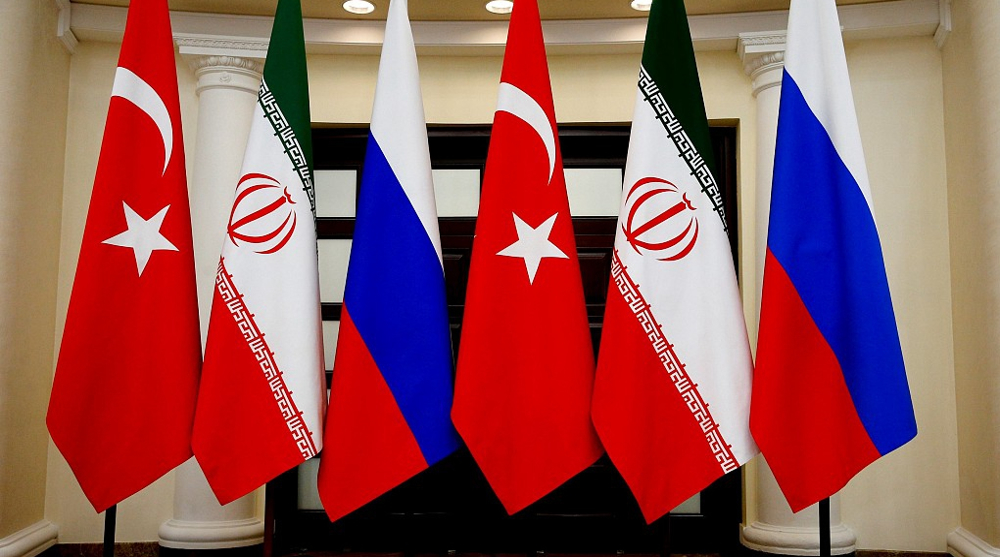 By Giorgio Cafiero
By Giorgio CafieroQatar's maiden Shura Council elections are being heavily scrutinized for their potential domestic and regional ramifications. While voter eligibility criteria has caused ripples within the country, some Gulf Cooperation Council (GCC) neighbors fear the Qatari vote will widen demands for representative government among their own citizens.
The Shura Council is Qatar’s dominant legislative body. To date, the Qatari head of state has appointed the body’s 45 members, but starting in October, Qatari voters will directly elect thirty of these members, with the the remaining fifteen appointed by Emir Tamim bin Hamad al-Thani. While the legislative body has the authority to propose laws, approve annual budgets, and sack ministers, the Qatari emir retains the ability to veto decisions of the Shura Council.
To be sure, there’s been much talk about elections to the Shura Council throughout this century. And after a Qatari constitutional referendum was held in 2003, the plan to elect two-thirds of the legislative body was finally formalized.
On past occasions (in 2007, 2010, 2011, and 2017), the leadership in Doha pledged to hold Shura Council elections, but they never came to pass. As Dr. Khalid al-Jaber, the director of MENA Center in Washington DC, recently wrote: “One of the reasons for the delay was Doha’s concern about influence on one of the elected Shura Council members by a neighboring country. Another, was the lack of popular pressure to turn the Shura Council into an elected body.”
Timing is everything
Considering the sensitive issues that sidelined elections in the recent past, why is Qatar now planning to hold the long-promised Shura Council elections with much fanfare? There are at least four important factors in play:
First, these elections could help boost Doha’s image internationally as a forward-thinking and reform-oriented Gulf country in the lead-up to the 2022 World Cup, hosted in Qatar. Opening the country’s main legislative body to elections could counter arguments that because Qatar is an “undemocratic and backwards nation” it should not host the global event – an argument that western Orientalists have been advancing ever since Qatar won the bid in 2010.
Second, the three-and-a-half year blockade against Doha has significantly impacted attitudes and popular sentiments among Qatari citizens. Today, the Qataris are less politically apathetic and more driven to mobilize. “[The Qataris] want to contribute, and the [Qatari] government wants to give them the opportunity to now participate,” says Dr. Andreas Krieg, a senior lecturer at the School of Security Studies at King’s College London, Royal College of Defence Studies.
Third, the leadership in Doha views the holding of elections to the Shura Council as critical to Qatar National Vision 2030, which is “a master vision and roadmap towards Qatar becoming an advanced society capable of sustainable development with the goal of providing a high standard of living for all citizens by the year 2030.”
These elections are “part of [Qatar’s] development and the next step in its political development,” according to Dr. Krieg. “It is a form of public participation with quite sincere impact on policy decision-making, because the Shura will have a lot more powers under the new law that will potentially set in motion a process that might end up in something more – maybe a constitutional monarchy.”
Fourth, with social contracts in the wider Arab region coming under higher levels of stress because of ‘Arab uprisings’ and economic downturns, Qatar’s leadership has likely decided to proactively introduce reforms and empower its citizens before they demand it on the streets.
So how will these elections to Qatar’s Shura Council impact intra-GCC relations? Almost eight months after the Al-Ula accord (the agreement between Qatar on one side, and the remaining five GCC members and Egypt on the other, which resulted in the lifting of the blockade against Qatar) was signed, there has only been partial reconciliation within the Gulf. None of the divisive issues over Doha’s support of political Islamists or its engagement with Iran and Turkey have been resolved, nor has Qatar’s independent streak been brought to heel.
Pushback from neighbors
If anything, the upcoming Qatari elections keenly demonstrate that Qatar continues to toe its own line on matters domestic and regional. The Shura Council vote is unsettling its direct neighbors, who see potentially dangerous ‘democracy’ implications for the internal dynamics of their autocratic states.
In a period in which Arab monarchies of the Persian Gulf prepare for the post-hydrocarbon era, social contracts have been weakened, economies have faltered, and new, often-unprecedented forms of taxation have been introduced. As the relationship between state and citizenry shifts, some of Qatar’s fellow GCC members have concerns about their own citizens making demands for greater and more direct representation in government. Of all its neighbors, Saudi Arabia seems to have the most anxiety over Qatar’s looming public vote.
Dr. Kristian Coates Ulrichsen, a fellow for the Middle East at Rice University’s Baker Institute for Public Policy, explains that “Bahrain has more of a participatory element although this has been watered down significantly in recent years, while the UAE has had a mix of elected and appointed members of the FNC since 2006. The move toward greater representative inclusion in Qatar could be watched most closely in Saudi Arabia, given that the Saudi Shura Council will, by 2022, be the only remaining such body in the Gulf that is wholly appointed.”
And, according to Dr. Krieg, “whatever happens in Qatar [matters to Riyadh] because Saudis look toward Qatar, so for the Saudi regime the issue of elections is one of regime security. They’re saying, if the Qataris have the right to vote and participate in policy making, then Saudis will probably ask for the same rights, particularly as the social contract in Saudi Arabia is failing and the regime is unable to provide as much as they used to provide in the past. The logical consequences of that would be more participation.”
Part of the resentment from some of Qatar’s neighbors stems from the fact that the social contract in Qatar is far stronger than in some other GCC states that have less wealth, and larger populations and territories. For Doha’s leadership, gravitating toward a more representative system of governance comes with far lower risks than for other GCC governments.
In Qatar, there is virtually no genuine domestic opposition to the ruling government – nor do citizens endure any real poverty. This cannot be said about other GCC countries, where anti-regime movements and organizations have been present and active over the years.The rulers of these states fear how free and fair elections with universal suffrage could challenge their legitimacy and the status quo.
Indeed, it would be difficult to imagine the Al-Saud rulers, for example, agreeing to any electoral opening in the Saudi kingdom, especially with Crown Prince Mohammed bin Salman (MbS) at the helm. The risks would be too high, and the consequences, potentially too dire and predictable.
The weeks ahead
With the elections slated for October, what can we expect in the interim from Qatar’s neighbors?
“What we expect, and what we’ve already seen over the past couple of weeks,” says Dr. Krieg, “are efforts, especially in the information space, to implement fake trends through trolls and bots that attack the integrity and reputation of the elections, trying to make the elections look as though they are illegitimate or unsuccessful.”
Just as Saudi and Emirati media outlets have long cited Kuwait’s internal problems as justification for continued autocracy in the region, there will likely be further efforts from some of Qatar’s neighbors to depict these elections as ‘disastrous.’
“They will look at voter turnout in particular,” says Dr. Krieg. “If voter turnout is low, Saudi Arabia and the UAE will try to make it look like a failure, and portray it as such in their local press because they need to make sure this looks unsuccessful, showing their own public that this is something you don’t want – democracy in this part of the world doesn’t work. We’ll probably have to expect that there will be more information campaigns, particularly as the election is taking place over a two-week period. In that time, we will probably see more interference by [Qatar’s] neighbors in the information space.”
On 10 August, Dr. Marc Owen Jones, an associate professor at the Hamad Bin Khalifa University in Qatar, shared his analysis of the Twitter “Qatar Revolts” hashtag. The Doha-based scholar demonstrated that there were “approximately 1789 fake accounts, all dedicated to promoting hashtags around the Qatar elections – more specifically, hashtags meant to portray the country as being in a state of revolt.”
Tribal sensitivities and eligibility controversies
This is not to say that the Shura elections expect to be entirely smooth-sailing inside Qatar. The country is indeed grappling with several election-related challenges, which may explain why its leaders have shied away from a public vote in the past. These difficulties relate mainly to tribal elements inside Qatar, and questions of eligibility that are highly sensitive among locals.
There are concerns about the significant role that tribes are bound to play in these elections to the Shura Council. The MENA Center’s Dr. Al-Jaber explains that “tribal loyalty, particularly in Qatar’s rural areas, has remained very strong, to the extent that there are worries that tribesmen will simply vote for their tribe’s candidates on the basis of their affiliation, rather than their policies or proposed agenda.”
As an example, one of Qatar’s largest tribes, the Al-Murra tribe, is also heavily present in Saudi Arabia and has had a history of conflictual relations with the Qatari state. This month, there have been a number of rare protests in Qatar, with Al-Murra tribal members voicing their opposition to the Shura Council law that governs who can vote. “The controversy centers on the question of who counts as a full Qatari, as the country takes tentative steps toward democratization,” explained Dr. Annelle Sheline, a research fellow for the Middle East at the Quincy Institute for Responsible Statecraft.
Under the law, eligible voters and those permitted to run in elections must be Qatari citizens, aged 18 and above, who can prove that their family was residing in Qatar prior to 1930, over four decades before the country gained independence – effectively, excluding members of the Al-Murra tribe and others from both voting and running in the elections. The current law denies about 20 to 25 percent of Qatari citizens the eligibility to vote.
Social media accounts have shown footage, purportedly from somewhere inside Qatar, of men protesting. One video featured a tribesman who sought to appeal to Qatar’s head of state, saying that “unfounded political inequality and selective citizenship could lead to divisions.” In response to such debates on social media, Qatar’s Interior Ministry decided to “transfer seven people to the public prosecutor for spreading false news and inciting strife.”
In a discussion on the Qatari Shura Council elections, Dr. Kristian Coates Ulrichsen, a fellow for the Middle East at Rice University’s Baker Institute for Public Policy, says that “the issues of eligibility speak to the conduct of politics in its rawest form, who’s in, who’s out, and who gets to make that decision, as well as to issues of identity.”
What remains to be seen is whether the rules governing voter eligibility may loosen up a bit to make the electoral system more inclusive during future elections to the Shura Council, set to take place every four years. Either way, following the vote, Qatar is likely to experience ramifications domestically, perhaps both positive and negative. As for the consequences from its neighbors, they will have to wait and see.









